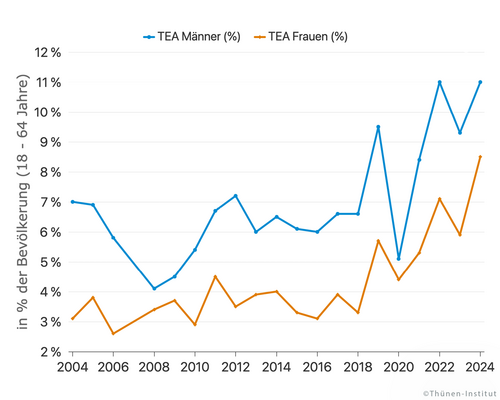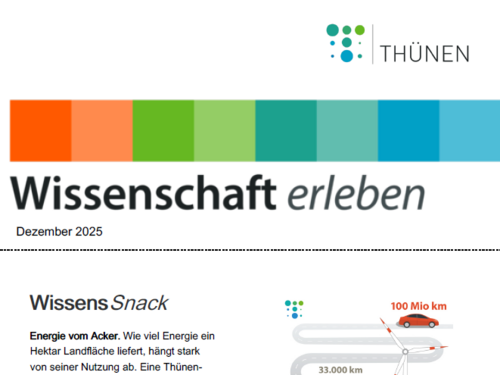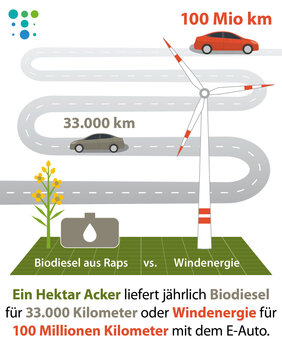
Millions of tons of food end up in the trash every year—at the expense of the environment, the economy, and society. In this episode, we talk about which social structures contribute to this and how we can achieve a more sustainable approach to food.

Women start businesses less often than men – but are catching up. This is shown in the report “Women Entrepreneurship Monitor 2024/2025” published today by the RKW Competence Center. Thünen researchers were also involved in the study.

Read the latest edition of the Thünen Newsletter to find out how wood products can protect the climate, how German coastal fishing is becoming sustainable, and how the coordinator of the Thünen Landscape Laboratory EiLT is working to ensure a better tomorrow.
The Thünen Institute.
Research and policy advice on rural areas, agriculture, forests and fisheries.
As a research institute in the portfolio of the Federal Ministry of Agriculture, Food and Regional Identity (BMLEH), we work at the interface of science, politics and society.
- 1 180
Employees, 651 of them scientists
- 15
Institutes conduct research in the fields of rural areas, agriculture, forestry and fisheries
- 1 178
Lectures in 2024
- 1 046
Publications in 2024
KnowledgeSnack
Energy from the field. How much energy a hectare of land provides depends heavily on how it is used. A Thünen study shows that wind power and solar power are significantly more efficient than bioenergy. A car can travel around 3,000 times further on wind energy than on biodiesel from rapeseed. Similar differences also exist in electricity and heat production.
To Wissenschaft erleben (only in German)
New publications
- 0
Hillebrand H, Baums IB, Beng KC, Dajka J-C, Franke A, Hodapp D, Laakmann S, Levi S, McCarthy A, Neun S, Oestreicher A, Rädecker N, Sebuliba S, Smykala M, Striebel M, Tallon AK, Happe A (2026) Towards a broader perspective on marine biodiversity change. Mar Biodiv 56(1):1, DOI:10.1007/s12526-025-01587-0
- 1
Bromhall K, McLaverty C, Eigaard OR, Wilms Tm JG, Noack T, O'Neill FG, Dinesen GE (2026) Quantifying depletion rates of benthic macrofauna from the Danish Seine - a ‘low impact’ mobile bottom-contacting fishing gear. Fish Res 293:107611, DOI:10.1016/j.fishres.2025.107611
- 2
Lewin W-C, Weltersbach MS, Strehlow HV (2026) German anglers' views on global warming - implications for climate change monitoring and management. Environ Manag 76(1):20, DOI:10.1007/s00267-025-02291-2
- 3
Azevedo-Ramos C, Pacheco J, Murakami Lima RY, Moutinho P, Lüpke H von, Fischer R (2026) Conservation and land-use governance in Brazil : domestic and international interconnectivity. Land Use Pol 161:107870, DOI:10.1016/j.landusepol.2025.107870
- 4
Beukhof ED, Uhlmann SS, van der Reijden K, Anastasopoulou A, Altuna-Etxabe M, Astarloa A, Basurko OC, Binch L, Bluemel JK, Carbonara P, Dinesen GE, Eigaard OR, Festjens F, Girardin R, Halouani G, Kempf A, MacMillan I, Papadopoulou N, Potier M, Romagnoni G, et al (2026) From bycatch to litter : a systematic map of the ecological impacts of fishing in European seas. Rev Fish Biol Fisheries 36(1):9, DOI:10.1007/s11160-025-10013-4







